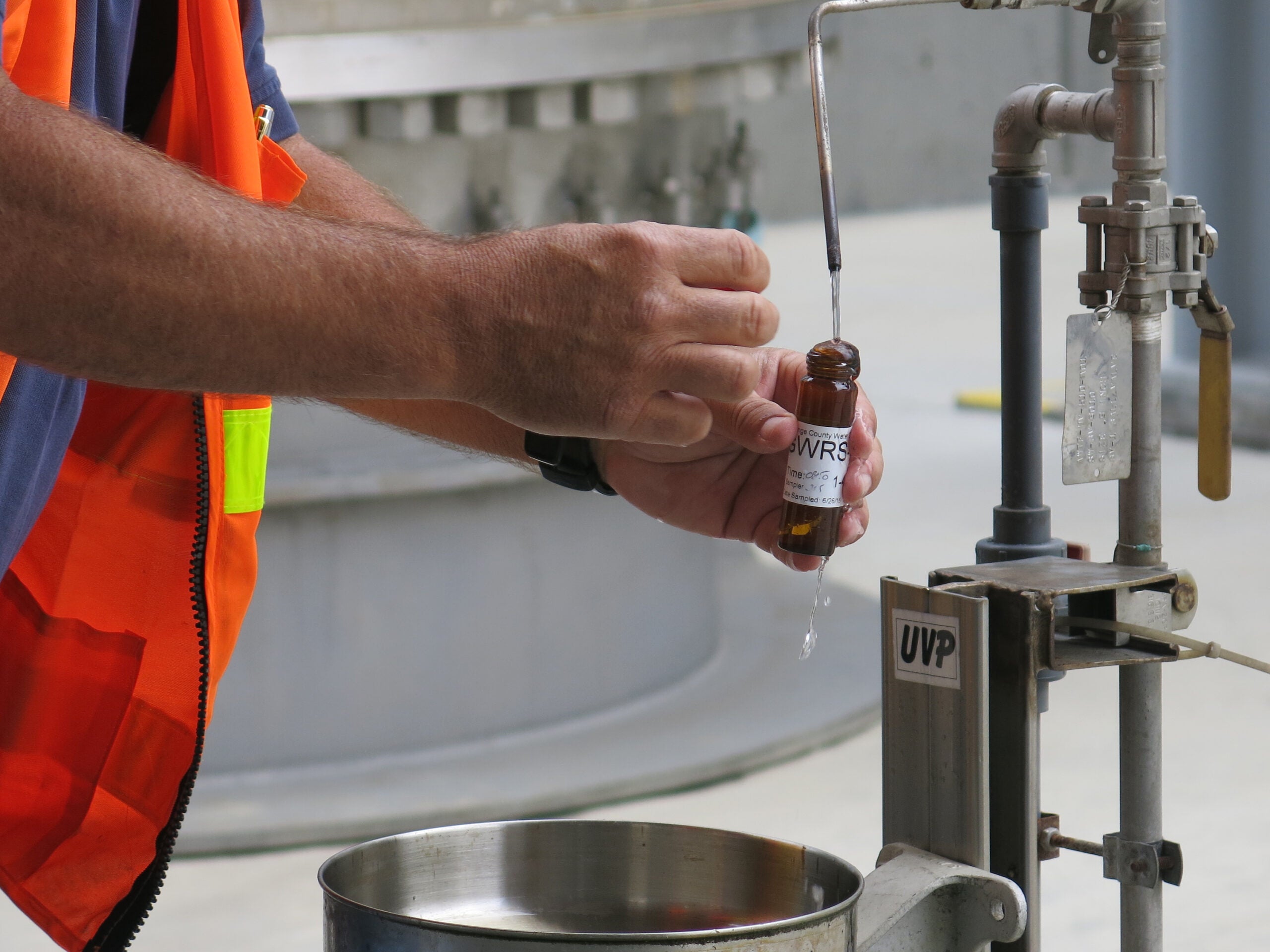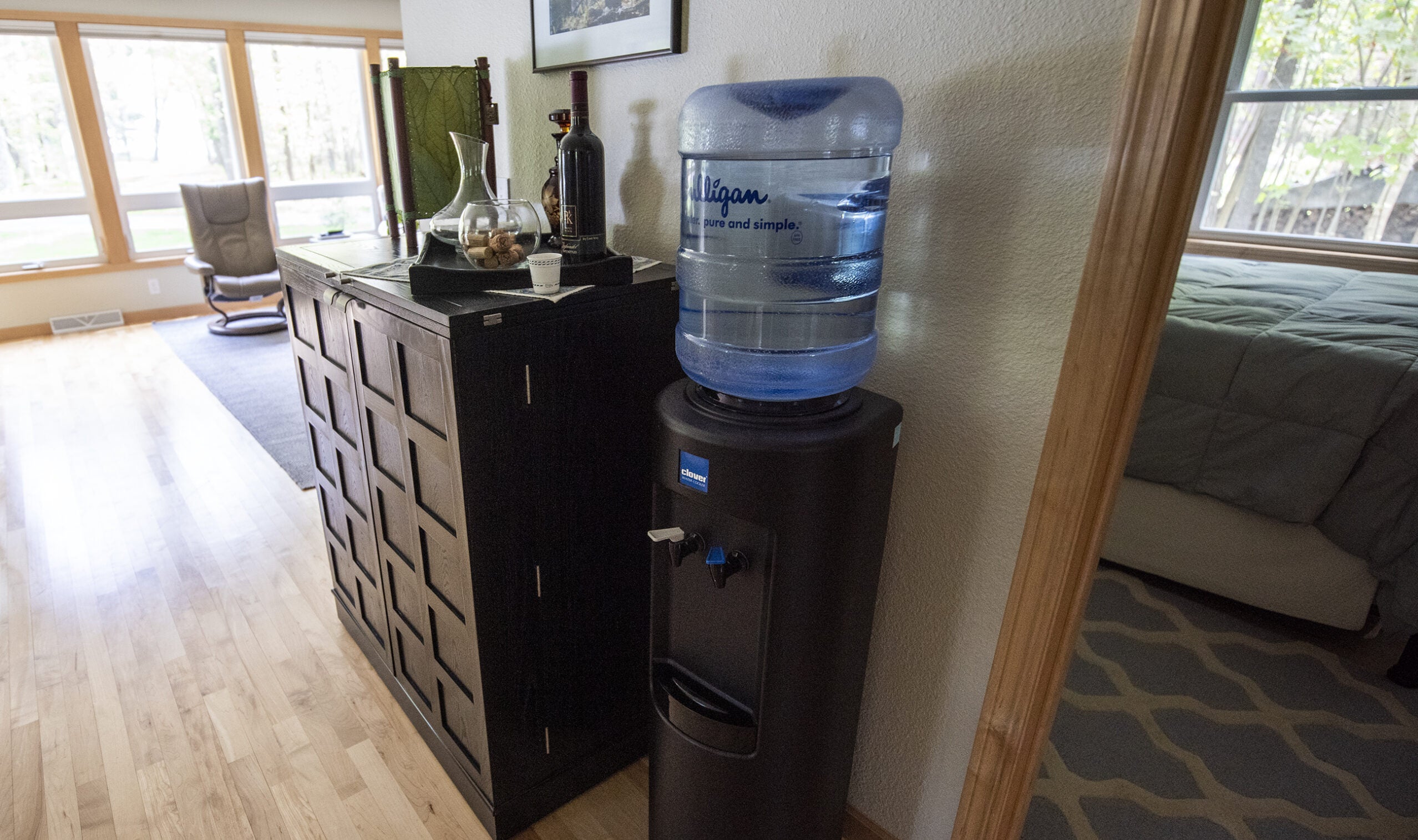Gov. Tony Evers’ administration is proposing new groundwater quality standard recommendations for 27 substances determined to be a threat to public health, including compounds known as PFAS.
At a press conference on Friday in Madison, representatives from the state Department of Natural Resources, state Department of Health Services and state Department of Agriculture, Trade and Consumer Protection explained how a recommendation by the DNR was made to DHS to do a scientific study of potential health hazards associated with the list of chemicals. DHS has now forwarded their recommendations to the DNR, which will begin a rulemaking process to set new standards.
Deputy DNR Secretary Elizabeth Kluesner said the agency will move as quickly as possible to set new groundwater standards based on the recommendations.
News with a little more humanity
WPR’s “Wisconsin Today” newsletter keeps you connected to the state you love without feeling overwhelmed. No paywall. No agenda. No corporate filter.
“I also want to point out that today begins a new chapter for returning Wisconsin to being a leader in the field of environmental protection,” Kluesner said. “The DNR has not revised our groundwater standards for 10 years and with these science-based recommendations in hand we will immediately begin rule writing.”
The recommended enforcement standard for PFAS is below the federal advisory and the same as one in place in Vermont, which has a 20 parts per trillion enforceable standard for drinking water, as WPR has previously reported.
PFAS is a class of per- and poly-fluorinated compounds found in household items such as non-stick cookware and water-resistant clothing, as well as firefighting foam. PFAS can be hazardous to human health if ingested.
DHS toxicologist Dr. Sarah Yang said the most acute health affects reported in people from PFAS chemicals have been found in people who worked at companies manufacturing them or those living in areas with heavy air and water contamination from PFAS compounds.
“Some of the things that they had seen in those people are effects on reproduction, effects on immune response,” Yang said. “So, things like not as responsive to certain vaccines and then affects on development of babies.”
PFAS contamination of groundwater has been of growing concern in Wisconsin. Groundwater in Madison, Peshtigo and Marinette have tested positive for the chemicals, according to the DNR.
Kluesner was asked why the recommended standard for PFAS concentrations in groundwater is more stringent than those set by the U.S. Environmental Protection Agency. She said the proposal is about recognizing the threat and protecting people.
“Some people may argue, ‘Well, you guys should just be using EPA’s 70 parts per trillion not 20?’ The point is we’re asking someone to now comply with a PFAS and PFOA number where they didn’t before,” Kluesner said. “And so, it’s going to cost them money to do so.”
The proposed recommendations would set standards on groundwater quality that would apply to things like bottled water, cleanups of contaminated sites and regulation of solid waste landfills.
Mike Mikalsen, chief of staff for state Sen. Steve Nass, R-Whitewater, who co-chairs the state’s Joint Committee for Review of Administrative Rules, said it’s incumbent on the agencies to work through the rules process to show the need in terms of public health and economic impact.
“It is clear that a rule of this type when you look at what it would likely cover and what it would require in terms of water quality will have a significant price tag across the board,” Mikalsen said. “It will have significant cost that will have to be met and that will have to be planned for.”
The public will have a chance to comment on the newly proposed standards in the coming months before the DNR proposes rules to incorporate them. That process is expected to take two and a half years, but administration officials could seek an emergency rule to enact them sooner.
Wisconsin Public Radio, © Copyright 2026, Board of Regents of the University of Wisconsin System and Wisconsin Educational Communications Board.







